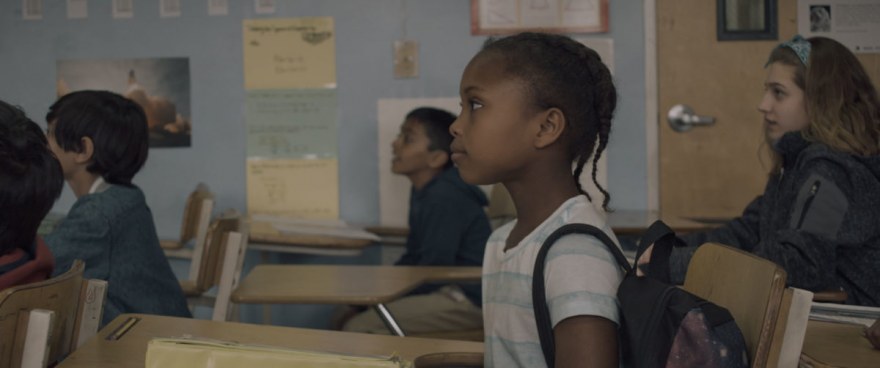Breakfast with One Small Step
An interview with Aqsa Altaf, director of One Small Step
What inspired you to tell this story?
The main theme of the story is about making difficult choices – choices that can’t necessarily be categorized as good or bad. Travis did a great job of making that evident in every scene. The emotion and humanity of it resonated with me – I was financially supporting my family of five members for four years. I worked three jobs, seven days a week to make ends meet. Every day I thought things would get better if I worked harder until one day I realized that if I don’t make the choice to think big picture, I would forever be trying to save a sinking ship. I made the decision to move to USA – a decision that felt like the biggest mistake at first but turned out to be the biggest blessing. A decision that filled me with guilt at first but turned out to be my calling. Me and my family are in a better place – physically and most important mentality because of it. The main character of this story is making a similar choice at the end of the film – a choice that will define who she will become one day. It is about growing up and realizing if you want to be defined by your circumstance or if you want to create your own identity. I felt an immediate need to tell this story and preparation met opportunity when this film came my way.
Can you tell us more about the casting of the central young characters?
We auditioned a lot of child actors and shortlisted some for callbacks and chemistry reads. Everyone brought something different to the table and it was exciting to see how each actor filtered the material and brought something different. The reason me and the producers decided to go with Charlie Reddix (who played Dasani) and Destiny Toliver (who played Avianna) was because of how they truly embodied the spirit of the characters. It was like seeing Dasani and Avianna from the script come alive. Both Charlie and Destiny were great, natural actors who knew how to take direction. From my experience, child actors usually come across as actors on screen but with Charlie and Destiny, they were just kids who were good at working within the confines of the world the story was set in.
Are you particularly interested in social realism as a genre? What are your cinematic influences?
Yes, social realism is a genre that I am very interested in. I grew up as an expat with minimal rights in Kuwait. I grew up seeing social injustices being practiced openly around me and the more conscious and educated I became of them, the more I realized how much power we have to bring change. One of the mediums of change that I was exposed to early on was documentaries. It is from there that I fell in love with telling stories that actually say something about the society we live in and having characters that are relatable and not “perfect”. A lot of films and filmmakers have defined my influences over the years – Paul Greengrass being a name that comes to mind immediately. Having a background as a journalist is what, I think, makes his subject matters and filmmaking techniques unique and interesting. I have always admired the naturalism he brings in his films and his approach on working with actors. Bicycle Thieves (1948) and Short Term 12 (2013) were two films that I studied while I was prepping to shoot One Small Step. Both these films were incredibly human and said so much in terms of what was and is currently going on in the world. I loved the naturalism done with a narrative structure approach that Bicycle Thieves brings and admire the tonal simplicity focused on characters Short Term 12 embodies.
What are you keen to explore next in terms of subject?
I would love to keep making social realistic dramas. I finished writing a feature script about the Syrian Refugees crisis recently that has been close to my heart. The next thing I want to work on is a thriller. I want to explore that genre and see how I can combine what I know with what I learn. I am really excited to see where it takes me and what comes out of it.
What sort of freedom would you say the short format allows?
The great thing about short film format is that it forces you to be creative with narrative structure and conveying information to the audience. With the limited time, you are forced to think how I can convey A and B in one scene which often times makes the scene more complex and therefore more interesting. Short format also allows you to explore your style as a filmmaker and figure out what your voice really is trying to say so when you go on to direct your feature, you will be more prepared.
Are you taking part in other events during the Clermont-Ferrand Film Festival? (Espressos, Conferences, other?)
Yes. I am excited to be taking part in these events so I can meet other filmmakers, discuss their short films and network. Clermont-Ferrand film festival does a wonderful job of providing the filmmakers with that opportunity.
One Small Step is being shown in International Competition I12.








